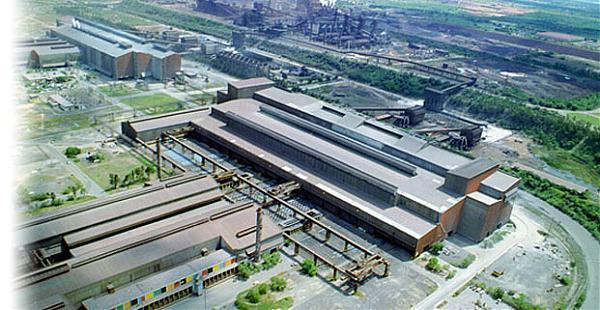Global Overview
Bu Tom Wipple

Capex crash: For the first time in more than three decades global capital spending in the oil and gas industry, known as capex, is set to fall for the second year in a row. (4/9)
The worldwide drilling rig count declined by 210 during March to 1551, according to Baker Hughes Inc. Year-on-year, the March worldwide rig count was lower by 40 percent. (4/8)
Royal Dutch Shell is under pressure from shareholders to cut annual spending below $30 billion after buying BG Group to ensure it can maintain its dividend given the slow oil price recovery. Shell reduced spending by $8.4 billion to $28.9 billion last year. (4/9)
Saudi Arabia plans to nearly double the size of its stock market, among the most closed in the world, by adding dozens of companies and making it easier for foreigners to invest. The kingdom aims to attract privately owned firms to list while privatization by the government will also boost the market, said Mohammed Al-Jadaan, chairman of the Capital Market Authority, the country’s regulator. (4/5)
India, in the energy world, is becoming the new China. The world’s second-most populous nation is increasingly becoming the center for oil demand growth as its economy expands by luring the type of manufacturing that China is trying to shun. And just like China a decade ago, India is trying to hedge its future energy needs by investing in new production at home and abroad. (4/8)
Vietnam’s government on Thursday said it had told China to pull an oil rig from waters between the two countries that haven’t been demarcated and urged Beijing not to drill for oil or gas in the area. (4/8)
Nigeria, despite being one of the world’s biggest oil producers, imports most of its fuel and is currently facing a severe shortage. It does not have enough oil refineries and even if the four it has were running at full capacity, they would only supply a quarter of the country’s needs. To meet demands, the national oil company imports around 50 percent of its fuel needs. The remainder is supposed to be imported by private fuel distributors. (4/8)
 Venezuela’s main steelmaker Sidor has been shut down for 25 days, a union leader said on Wednesday, blaming the situation on the military officers who run the state-owned firm. Leonardo Azocar, the leader of the largest union representing Sidor workers, said, “The plant is paralyzed because of bad management, it’s not the workers’ fault,” The company has said in the past that constant labor disputes and obsolete equipment have hindered its performance.
Venezuela’s main steelmaker Sidor has been shut down for 25 days, a union leader said on Wednesday, blaming the situation on the military officers who run the state-owned firm. Leonardo Azocar, the leader of the largest union representing Sidor workers, said, “The plant is paralyzed because of bad management, it’s not the workers’ fault,” The company has said in the past that constant labor disputes and obsolete equipment have hindered its performance.
(4/7)
The Canadian Association of Petroleum Producers estimated capital on oil and gas production spending will be expected to decline 62 percent from 2014 levels to $24 billion, the largest two-year decline since record-keeping began in 1947. (4/9)
In Canada, after almost two years of sinking oil prices and at least 40,000 job cuts, the petroleum industry still isn’t finished tackling its bloated operations. The next round of layoffs has already begun with Cenovus Energy Inc. and Murphy Oil Corp. announcing workforce reductions last week. Ongoing cuts by Suncor Energy Inc., Encana Corp., and others will likely result in thousands more jobs lost by the end of the year as the Canadian industry shaves billions worth of spending in order to continue operating in one of the world’s most expensive oil-producing regions. (4/5)
The US oil rig count declined by 8 to 443 while the number of U.S. gas rigs rose by one to 89 from a week ago, according to Baker Hughes Inc. (4/9)
Credit ratings knocked: Oil companies big and small are having their credit ratings cut as the collapse in crude prices reduces cash flows and limits their ability to sustain debt payments. Chevron and Royal Dutch Shell had their ratings reduced by Moody’s Investors Service by one level, while Total’s was cut two steps, according to statements by the New York-based rating company on Friday. Chevron will generate negative cash flow amid rising debt for at least the next two years. (4/9)
In Houston, the boom helped create 100,000 oil and gas jobs annually for several years, while the bust resulted in 50,000 layoffs last year alone. And the layoffs aren't over. Another 21,000 job losses in the oil and gas sectors are projected for this year. Other problems loom, including a projected city budget shortfall of at least $140 million and a slumping commercial real estate market. (4/5)
 20,000 cuts: According to the Federal Reserve Bank of Dallas' calculations, oil and gas companies working in the U.S. have cut more than 20,000 from their payrolls during the first quarter of the year. Their latest analysis said many oil and gas companies are entering "survival mode" as they look to navigate the declining market trajectory. (4/9)
20,000 cuts: According to the Federal Reserve Bank of Dallas' calculations, oil and gas companies working in the U.S. have cut more than 20,000 from their payrolls during the first quarter of the year. Their latest analysis said many oil and gas companies are entering "survival mode" as they look to navigate the declining market trajectory. (4/9)
Merger full-stop? Rumors surfaced earlier this week the US Justice Department would follow its European counterparts in challenging the proposed merger of the two companies because of concerns about market competition. The two companies are the No. 2 and No. 3 in terms of market share, behind Schlumberger. (4/8)
Anti-fracking Grist: A new study from Stanford has confirmed that fracking operations are contaminating drinking water sources in Wyoming. This news comes soon after a Pennsylvania jury awarded $4.24 million to two families in Dimock, PA who sued Cabot Oil for contaminating their drinking water via fracking operations. And a new study that has found fracking — and not just frack waste injection — is causing earthquakes in Canada. (4/7)
BP Macondo settlement: Judge Carl Barbier granted final approval on Monday to BP’s civil settlement over its 2010 Gulf of Mexico oil spill after it reached a deal in July 2015 to pay up to $18.7 billion in penalties to the U.S. government and five states. The company at the time said its total pre-tax charges from the spill set aside for criminal and civil penalties and cleanup costs were around $53.8 billion. (4/5)
Oil refineries are shifting into high gear to produce as much gasoline as possible for the world’s fuel-hungry drivers – kicking the problem of a worsening diesel glut further down the road. The “margin” or profit derived from refining crude into diesel has plunged in Europe, hitting multi-year lows this week as demand for the fuel – used heavily for heating in the Northern Hemisphere – wilts towards the end of winter. (4/9)
Big airlines are making waves in the oil market for the first time since prices went into a tailspin nearly two years ago, betting this may be their best chance to lock in cheap jet fuel for years to come. A number of airlines moved last week to place significant oil price hedges for 2017, 2018 and even 2019. (4/7)
Gas backfires: Experts don’t know how exactly much money utilities have lost nationwide on natural-gas hedges. Natural-gas prices have plunged 74% in the past 10 years, but some US utilities haven’t reaped the full benefit because of bad bets they made to hedge the cost of the fuel. (4/4)
Weekly US coal production totaled an estimated 11 million tons in the week ended April 2, down 5.4% from the prior week’s estimate and down 37.9% from the year-ago week. Year-to-date coal production is down 32.2% compared with the same period last year as producers continue to deal with weak demand due to high utility stockpiles and competition from cheap natural gas. (4/9)
Railroad Blues: The number of railcars loaded with coal in the first 12 weeks was down by 32 percent compared with 2015. Coal loadings are down because power plants have switched to burning inexpensive natural gas. Overall, U.S. rail freight declined more than 6 percent in the first 12 weeks of 2016 compared with a year earlier. (4/5)
Investment climate shift: One by one, the descendants of John D Rockefeller, the Gilded Age oil baron, are repudiating the fossil fuels that made the family rich. On the heels of the Rockefeller Brothers Fund in 2014, the Rockefeller Family Fund, the charitable vehicle of another arm of the family, announced last month that it would be divesting its shares in coal producers and oil and gas explorers, including ExxonMobil. (4/4)

